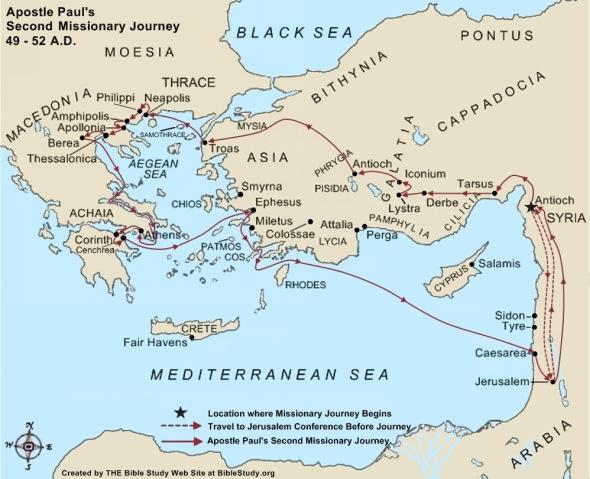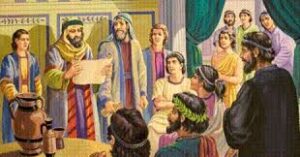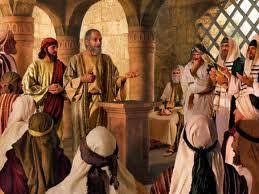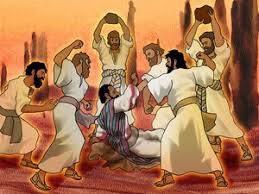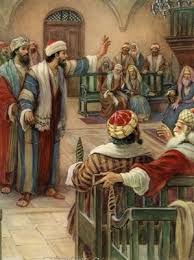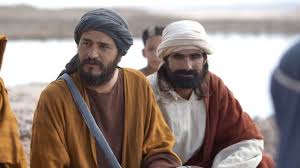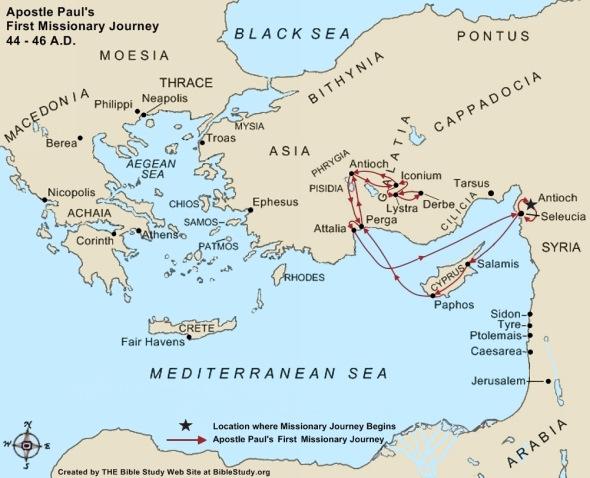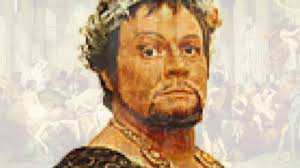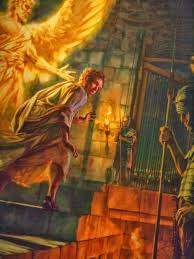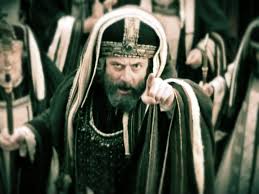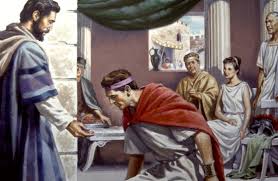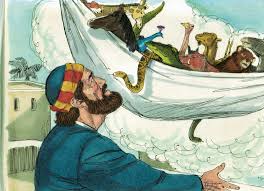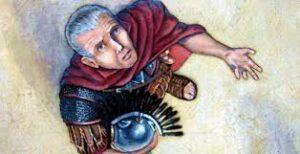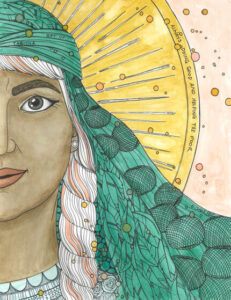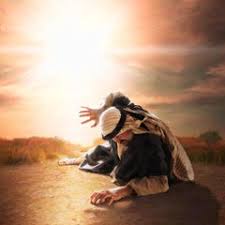Bv – Disagreement between Paul and Barnabas 15: 36-41
Disagreement between Paul and Barnabas
15: 36-41
50 AD
Disagreement between Paul and Barnabas DIG: Who do you think was right in this dispute? Paul or Barnabas? Why? Is it possible for one not to be “wrong” and one to be “right,” but simply to have an honest difference of opinion? What was the result in this split between the two?
REFLECT: What goes through your mind when people you greatly admire show sides of themselves that you’ve never seen before, when they appear oh-so-human? When have you had a difference of opinion with another believer and decided to part ways? What happened? If it’s not about the fundamentals of the gospel, is it all right to disagree? What is the advantage in majoring in “the majors” (the fundamentals of the gospel) and not majoring in the minors? What happens when you get sidetracked in minor issues that have to do with our freedom in Messiah? Have you ever made a snap judgment of someone’s motives while standing on the outside looking in? Why is this so wasteful and dangerous?
At this strategic moment in the history of the Church, when it began to radically change from a movement within Judaism to a predominantly Gentile movement, two of its most important visionaries could no longer see eye to eye and parted company. Luke gives us no indication why the conflict between Paul and Barnabas could not be resolved. But, Barnabas turned out to be right in his assessment of his cousin Mark. After a few more years of discipling with the son of encouragement, early church tradition says Mark ministered with Peter and wrote a New Covenant gospel. Eventually, Paul changed his mind about Mark, writing to Timothy, “Get Mark and bring him with you, for he is useful to me for service” (Second Timothy 4:11; also see Colossians 4:10 and Philemon 23-24). Although they never ministered together again, we know that they eventually reconciled their differences, because Paul later wrote approvingly of Barnabas’ ministry (First Corinthians 9:6).353
After some days teaching and preaching in Syrian Antioch Paul said to Barnabas, “Let’s return and visit the brothers and sisters in every city where we have proclaimed the word of the Lord in the First Missionary Journey, to see how they are doing and disciple them” (15:36). It is probable that the days spent by Paul and Barnabas in Syrian Antioch was over the winter months and that the coming of spring, with the consequent opening up of travel routes by land and sea, stirred Paul to fresh activity. Paul’s proposal was for a return to visit the areas already evangelized, and in the light of the letter to the Galatians we can understand one of the reasons that made him propose such a journey.354
As he had just done earlier in Chapter 15, Luke once again indicates that the early Church was not without its heated disagreements. Barnabas was planning to take along his cousin John, called Mark. But Paul kept on insisting that they shouldn’t take him along – the one who had deserted them in Pamphylia, not accompanying them in the work of evangelism. But, Barnabas’ desire to take Mark with them was surely motivated by the wish to let the young man prove himself. This can be traced to their family relationship, which Luke does not mention (Colossians 4:10); but, to the sympathetic character of Barnabas, a people person, of which Luke has already given his readers good evidence (9:27). It was as if he was saying, “Come on, Paul, give the kid another chance!” Barnabas did a remarkable job in helping to turn around the life and ministry of his young cousin. Paul, however, was concerned about the mission and was unwilling to take a doubtful partner. He was a perfectionist, the “do-or-die” person, the “get up and keep punching” guy, intense, and was more concerned for the success of the mission. In his mind, Mark had blown his chance, leaving them shorthanded on the First Missionary Journey (13:13). It was as if he was saying, “The kid’s not dry behind the ears! A quitter! Excess baggage!”355
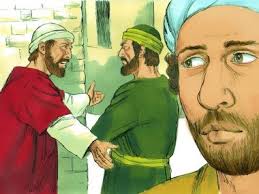
Therefore, a lengthy, sharp disagreement (Greek: paroxysmos, meaning anger, irritation or exasperation) took place, so that they split off from one another. While Paul evidently considered a spiritual principle to be at stake, Barnabas’ passion is probably fueled by family loyalty to his cousin. Barnabas took John Mark with him and sailed away to Cyprus (15:37-39). With that note, both Barnabas and John Mark sailed off the pages of the book of Acts, never to be heard of again. From now on Acts would focus on Sha’ul/Paul.
Just a couple of years earlier, Barnabas had been carried away with hypocrisy at the church in Syrian Antioch with regard of not fellowshipping with the Gentile believers there (see the commentary on Galatians, to see link click Bb – The Antioch Incident). The defection of Barnabas was of a far more serious nature with regard to Gentile freedom than the vacillation of Peter. Barnabas was Paul’s chief collogue in the evangelism of the Gentiles, and now to have him play the hypocrite and deserter, was a bitter blow to the great apostle. This may have been prepared the way for the dissension between them which two years afterwards led to their separation.
There is no doubt that ADONAI used this division, but this can never be casually used as an excuse for carnal division. God can redeem good out of evil, yet we are all held accountable for the evil we do, even if the LORD brings good out of the evil in the end. Either Paul or Barnabas – probably both – had to get this right with Ha’Shem, and they eventually did.356
Despite their disagreement here, we know that Paul and Barnabas remained friends (First Corinthians 9:6, written during the Third Missionary Journey, Colossians 4:10), and later Paul was even reconciled to John Mark (Colssians 4:10; Second Timothy 4:11 and Philemon 24). This shows that a disagreement does not require a break of fellowship. But there was one positive side of this disagreement. Instead of having just one missionary team, there were two; one comprised of Barnabas and John Mark and the other composed of Paul and Silas.
Since the prevailing custom was for missionaries to travel in pairs (8:14-17 and 9:32-33), Paul looked for a second traveling companion. Thus, Paul, summoning Silas from Jerusalem, went out, being entrusted by the brothers and sisters to the gracious care of the Lord (15:40). His choice of Silas indicates that the two men had become well acquainted during Paul’s visit to Jerusalem (see Bs – The Council at Jerusalem), and Silas’ teaching and preaching at Antioch.357 As with the First Missionary Journey, they were sent out from the church at Antioch. The church also probably sent out Barnabas and John Mark with their blessing as well. Silas was also known by his Roman name of Silvanus (Second Corinthians 1:19; First Timothy 1:1; Second Timothy 1:1). He was a leading believer in the Messianic community in Jerusalem (15:22 and 27), he was a prophet and had the gift of prophecy (15:32).
Paul selected a new partner, Silas, a leading man of the church, a prophet (15:22 and 32), and one chosen to take the Jerusalem council’s decrees to the churches (Acts 15:27). Silas is probably a Greek version of the name Sha’ul. He was a contributor with Paul of the letters to the church at Thessalonica, and he was the secretary for Peter’s first letter (First Peter 5:12). Like Paul, he was a Roman citizen (16:37).358
This was a wise choice in many ways: (1) Silas could speak for the Messianic community in Jerusalem and make clear that Paul was not at odds with them regardless of what the party of the circumcision may have said when they visited Galatia; (2) he could interpret the decree in 16:4, a matter of no small importance for Paul’s ongoing ministry to the Gentiles; (3) as First and Second Thessalonians and Second Corinthians 1:19 were to show, Silas was a capable coworker, and probably also a secretary for two of Paul’s earlier letters; (4) it appears from 16:37-38 that he was also a Roman citizen (16:37), as was Paul, which would be especially useful in colony cities like Troas, Philippi and Corinth.359
They both went through Syria and Cilicia since the decrees from the Jerusalem council were originally addressed to all the churches in those areas, strengthening the communities with discipleship (15:41). Just as Barnabas began his second missionary journey in his hometown of Cyprus, Paul began his Second Missionary Journey in Cilicia, where his home town of Tarsus was located.
The LORD changes His missionaries, but the mission goes on. Now there were two missionary teams instead of one! If ADONAI had to depend on perfect people to accomplish His will, He would never get anything done. Our limitations and imperfections are good reasons for us to depend on the grace of God, for our sufficiency is from Him alone: We are not competent in ourselves, but our competence is from God (Second Corinthians 3:5).360
Like Paul and Barnabas, we may sometimes find ourselves strongly disagreeing about matters that relate to ministry. But differing convictions don’t have to become razor-sharp arguments. Here is a four-step plan for dealing with conflicts between believers:
1. Identify the real source of the argument: Job asked the relevant question, “Is there no end to your futile words? What compels you to answer [me in this way]” (Job 16:3). Ask the Ruach ha-Kodesh to shed light on the true source. Sometimes we believe that conviction is the motivation for our differing views until we allow God to reveal our selfishness or unwillingness to change. Part of spiritual maturity is risking our position in favor of the will and glory of God. Let’s be willing to allow Him to shed light on any selfish or worldly view.
2. Submit the issue to God: James exhorts us to, “submit to God. But resist the devil, and he will flee from you” (James 4:7). An important part of giving anything to God is taking everything from the Adversary. Paul tells us not to sin in our anger and thereby give the deceiver a foothold (Ephesians 4:26-27). The ruler of demons has a field day with our arguments and quarrels. When we ask ADONAI to remove all selfish, worldly motives and influences of the enemy, issues often either disappear or downsize themselves to a workable level.
3. Resist the temptation to sin in your anger: Anger in and of itself is not sin. It is an emotion, and sometimes a very appropriate emotion. But unfortunately, anger heightens the risk of wrong actions and words. Each of us regrets something we’ve said or done in anger. Let’s ask God’s help when we are angry at another believer so that our feelings do not turn into wrong actions.
4. Pray for (and if possible, with) the other person involved: Prayer changes things and people! Philippians 4:6 invites us to pray about everything. Can you imagine how defeated the enemy would be if two divided church leaders or laymen got down on their knees together and prayed for God’s glory? We don’t have to be together on every issue, but we can be together in prayer!
Lord, let our love keeps growing in knowledge and every kind of discernment, so we can determine what really matters and can be pure and blameless in the Day of Messiah , filled with the fruit of righteousness that comes through Jesus Christ, to the glory and praise of God (Philippians 1:9-11), accepting one another, just as Yeshua also accepted us, to the glory of God (Romans 15:7).361



